Ch.5 Pt. 1 Viruses, Prions, and Viral Diseases
1/56
There's no tags or description
Looks like no tags are added yet.
Name | Mastery | Learn | Test | Matching | Spaced |
|---|
No study sessions yet.
57 Terms
Virion
- extracellular state of a virus
- only capable of infecting a host cell
- consists of >/= 1 molecule of DNA OR RNA enclosed in a coat of protein at min. (nucleocapsid)
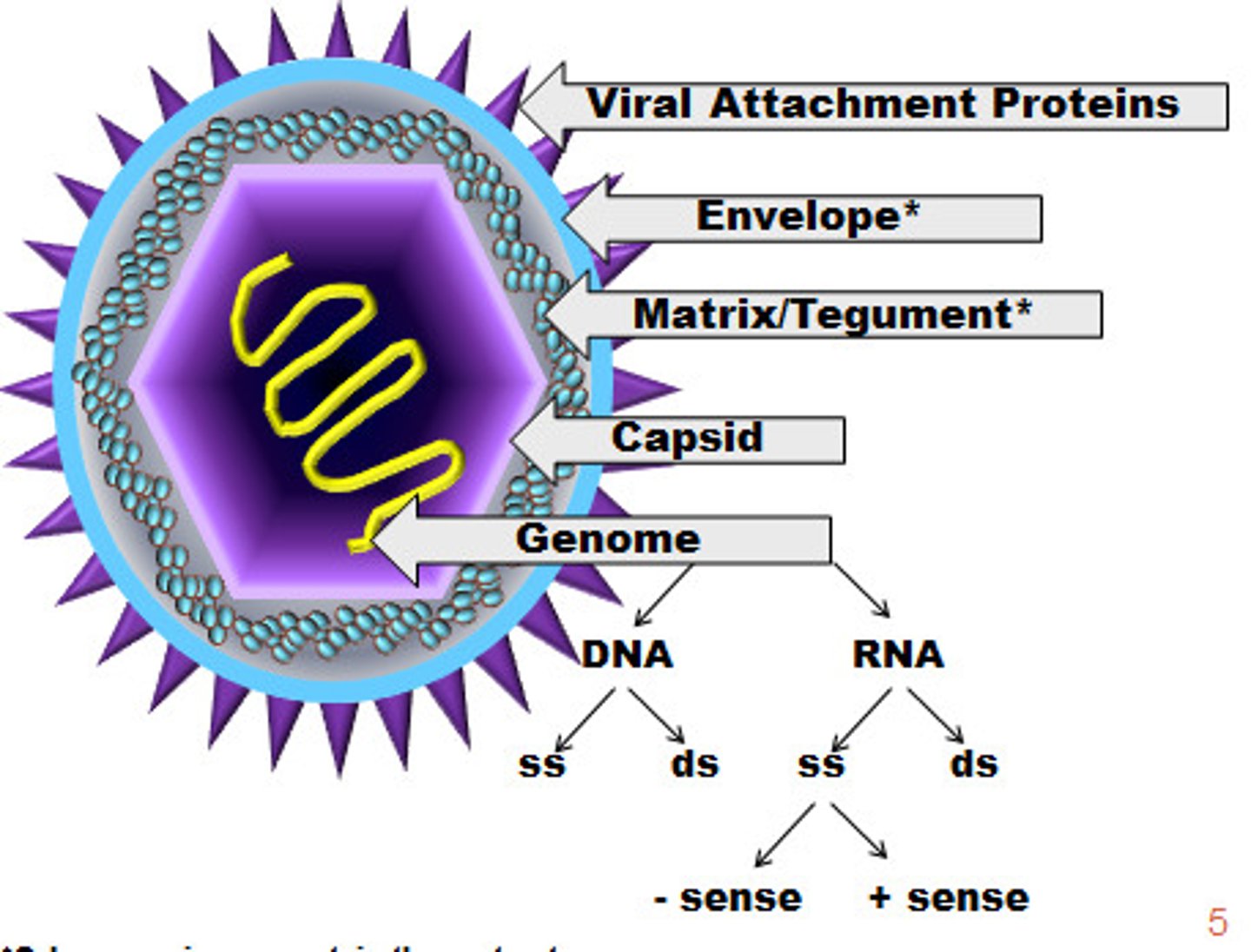
Capsid
a protein coat made up of capsomeres
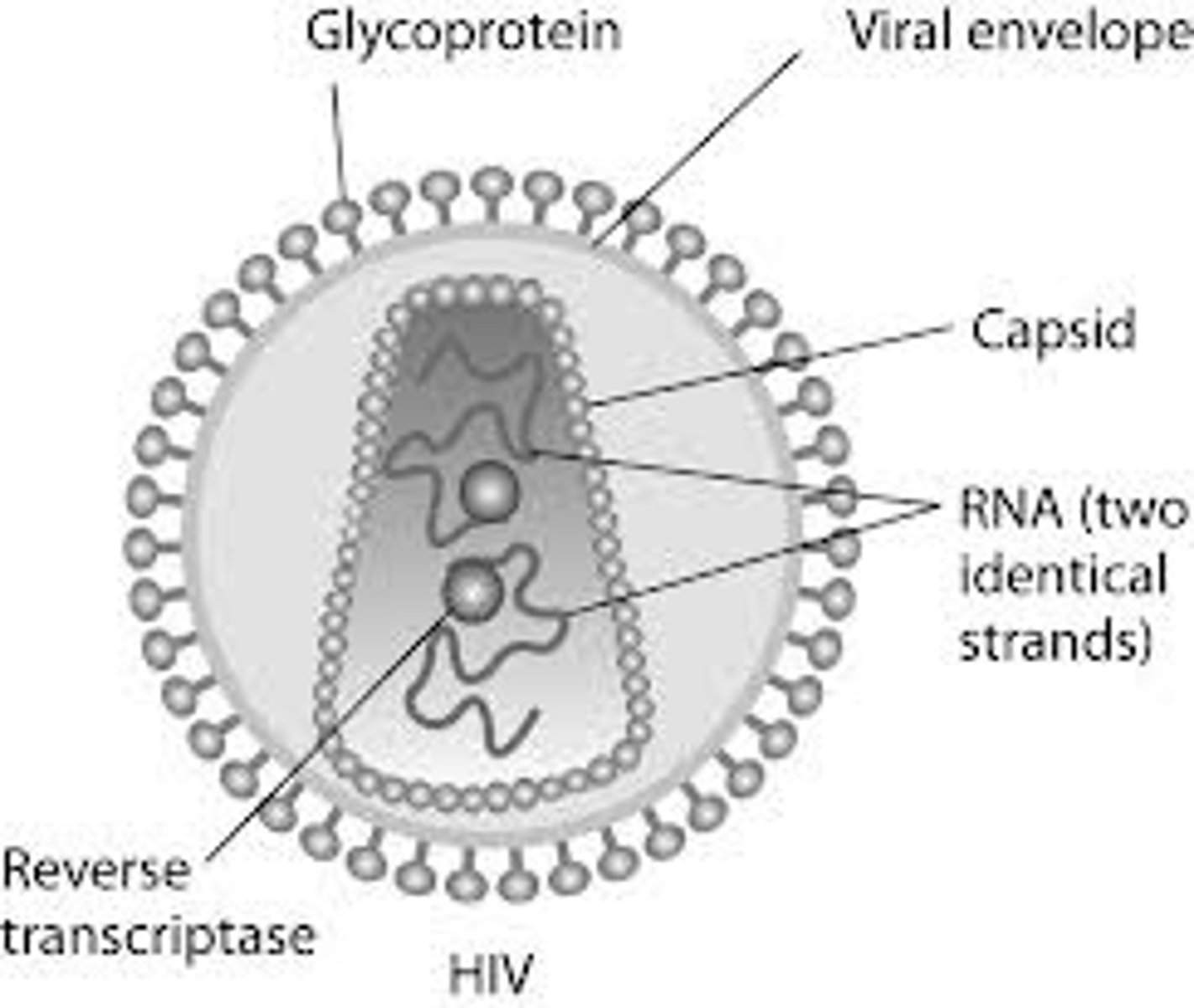
Nucleocapsid
- nucleic acid (DNA or DNA) surrounded by a protein coat (capsid)
- all viruses have this
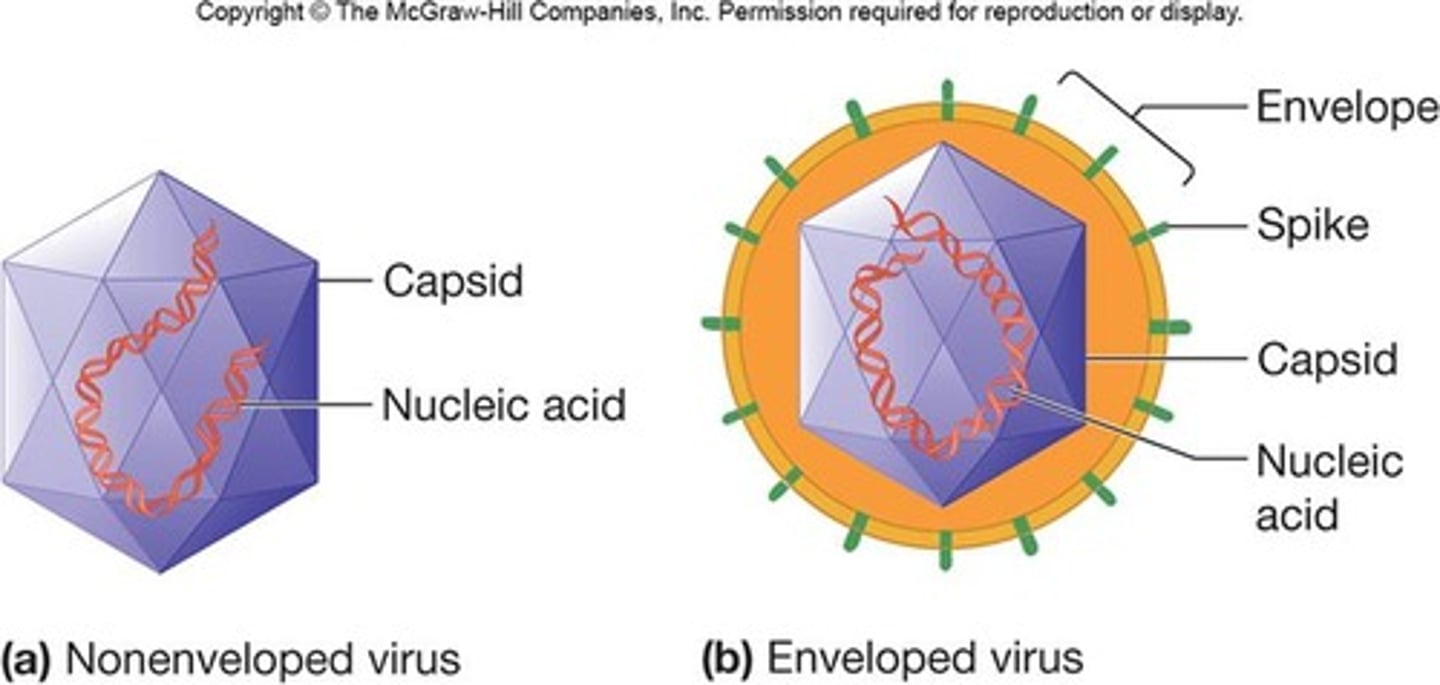
Capsomere
protein subunit that makes up the capsid
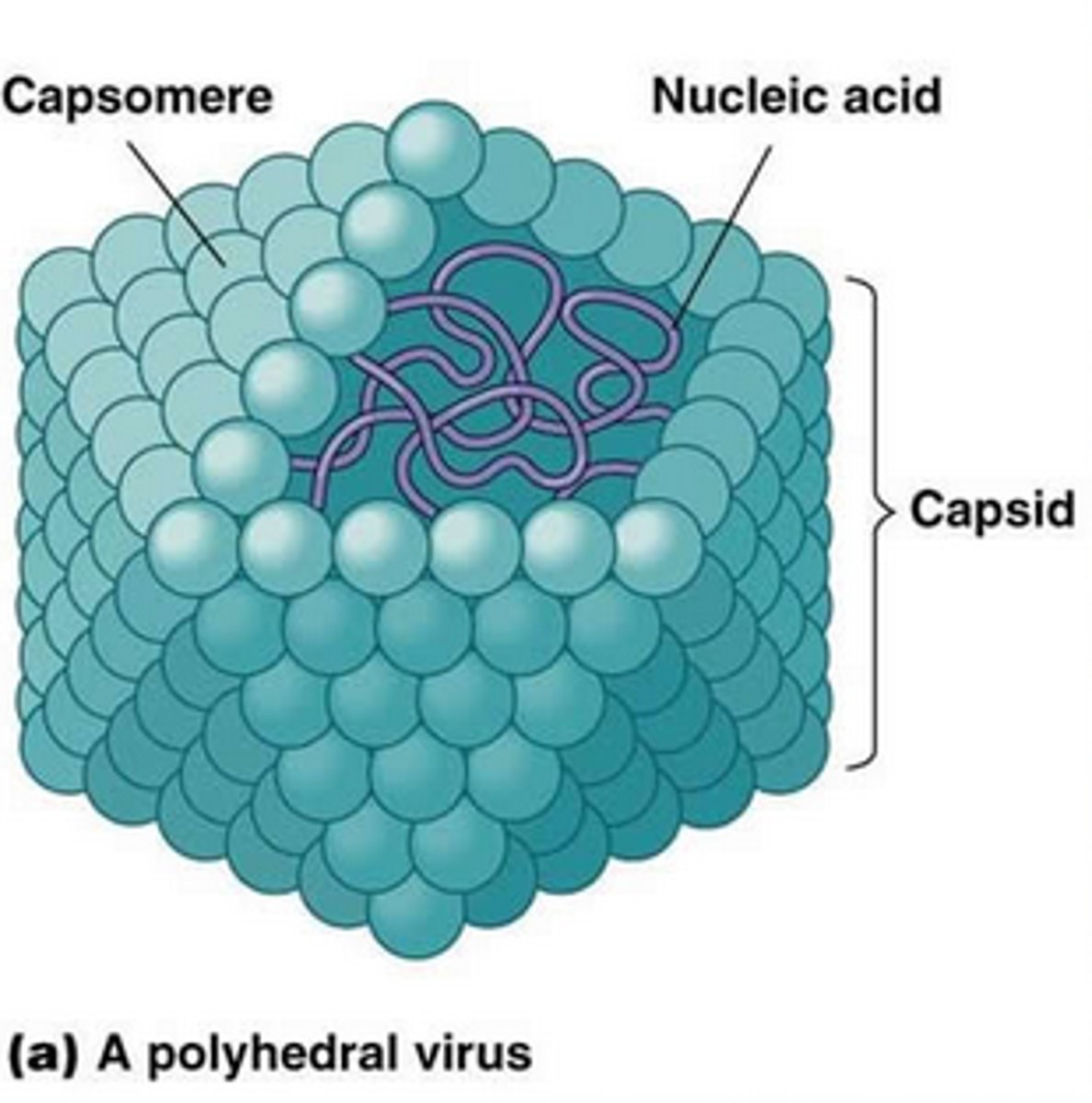
Spike
- viral proteins that are responsible for host cell specificity (host range)
- they attach a virion to the host cell for infection
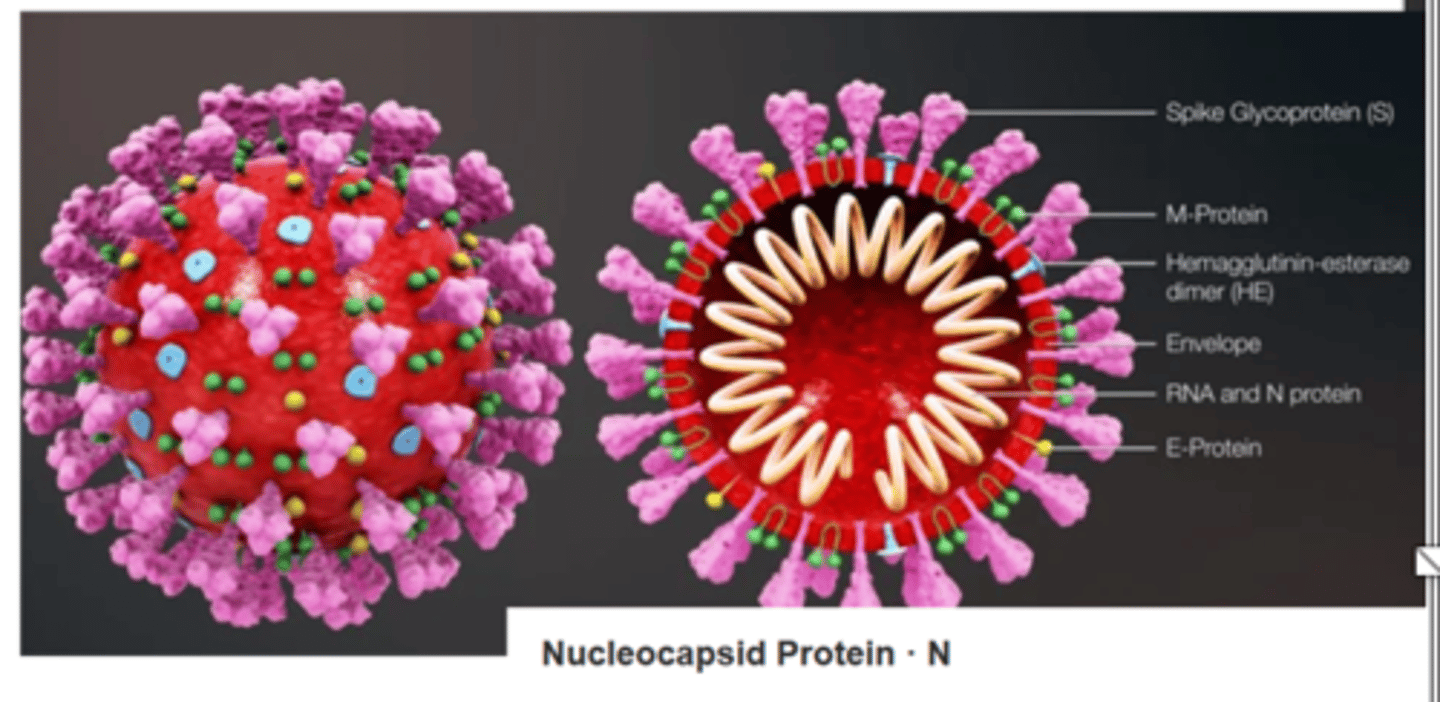
Envelope
taken from the plasma membrane (sometimes nuclear membrane) of the host cells in which the virus particle was made; has virus proteins inserted into it
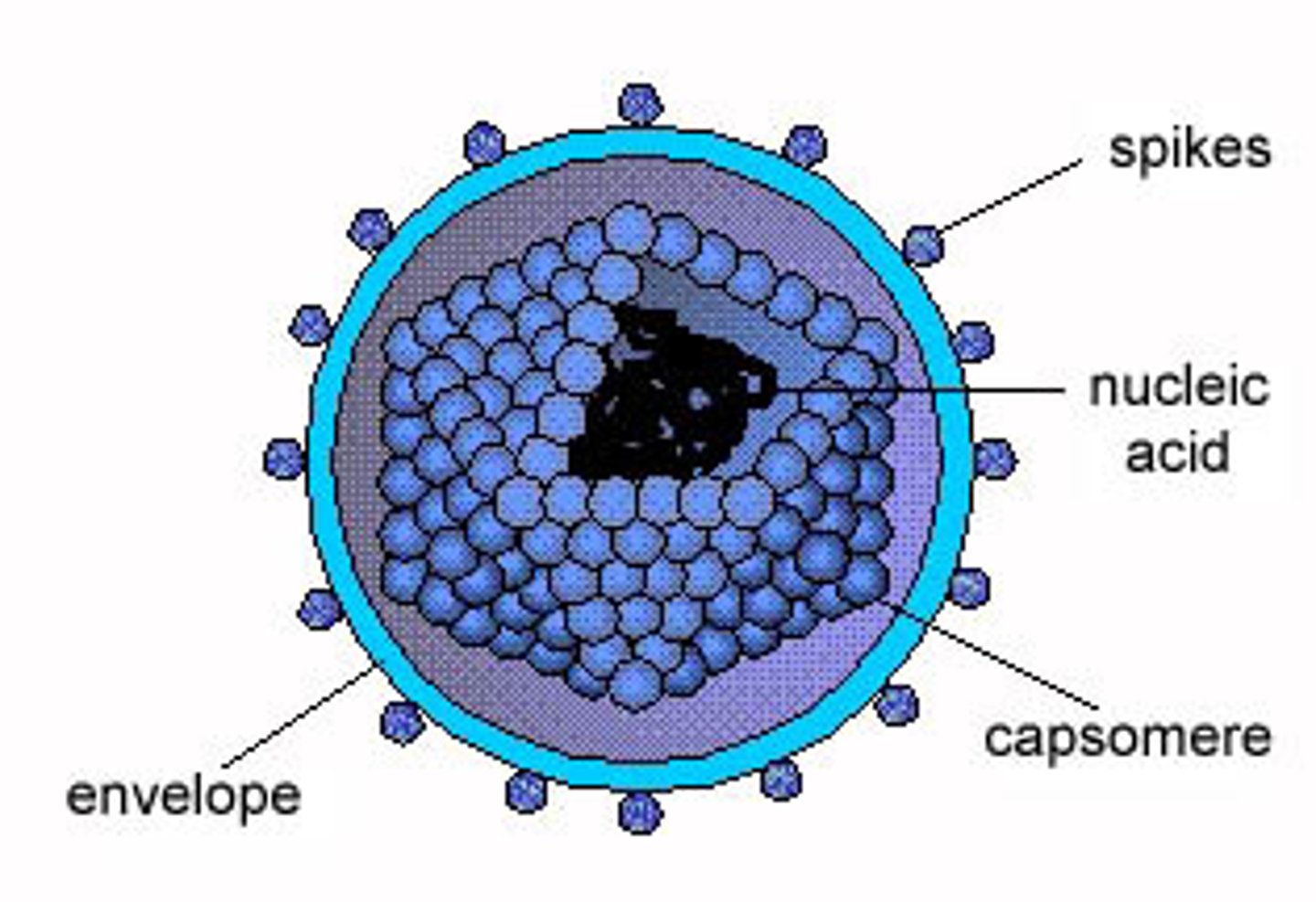
Lytic phages (virulent phages)
can ONLY do the lytic cycle
Lysogenic phages (temperate phages)
can do both lytic and lysogenic cycles
Steps in lytic cycle of T4 bacteriohages
attachment > penetration > biosynthesis > maturation > release
Lysogen
a bacterial cell containing a prophage
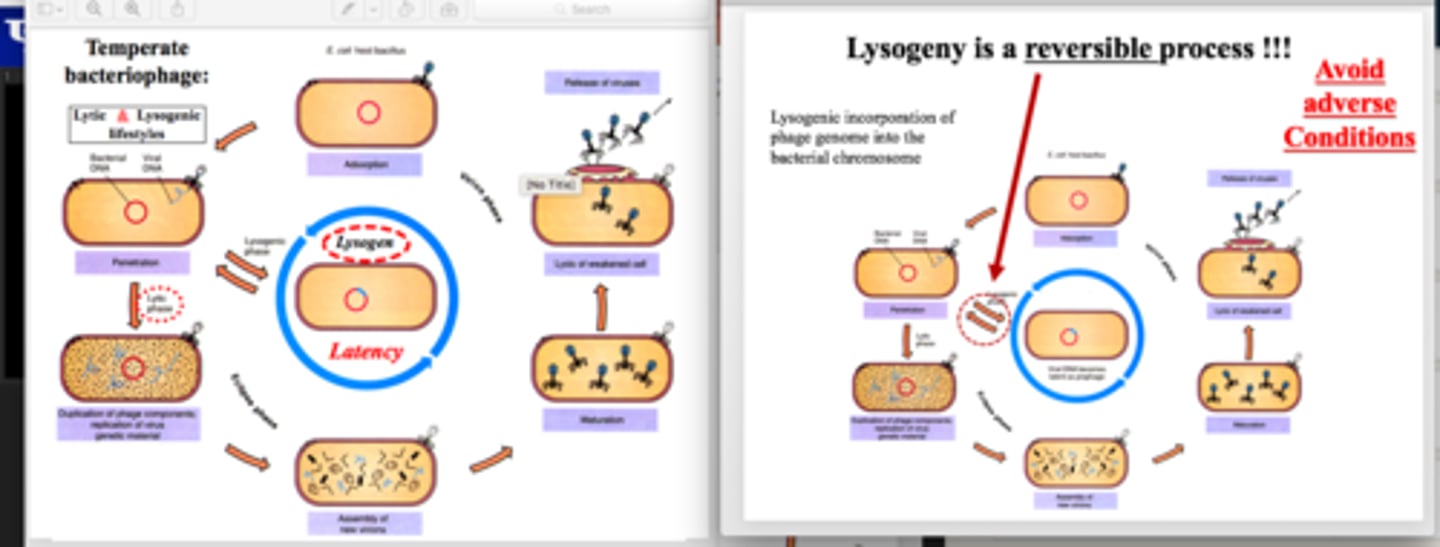
Lysogeny
Done by many temperate phages by integration of their genome into the host chromosome in a relationship called...
Prophage
Phage DNA integrated within a bacterial chromosome
Generalized transduction
associated with the lytic cycle
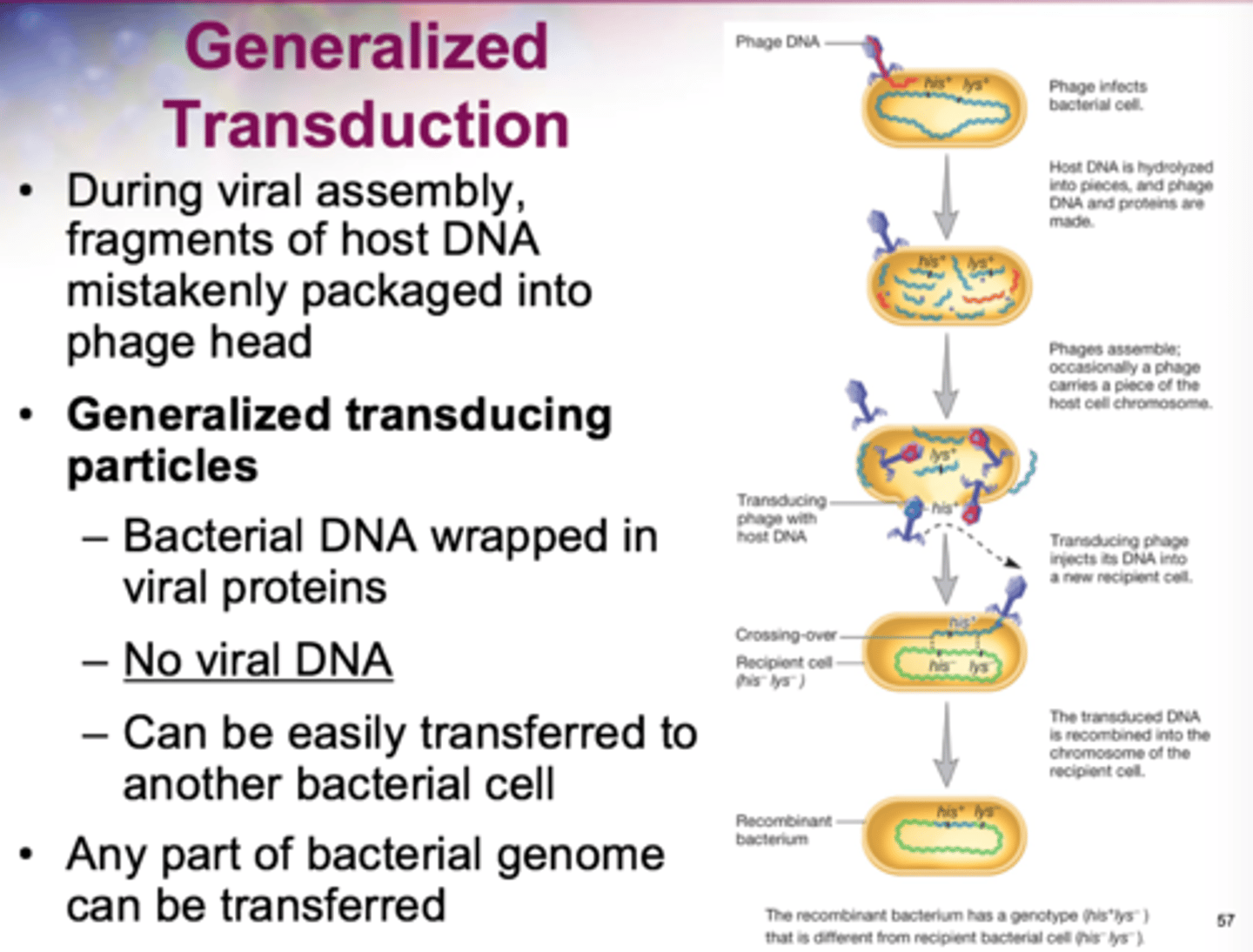
Lysogenic conversion
when the presence of a prophage causes a phenotypic change for the lysogen, the infected bacterial cell gains new abilities/characteristics from the new genes on the prophage
multiplication of animal viruses: attachment
viruses attach to cell membrane
multiplication of animal viruses: penetration
- by endocytosis or membrane fusion
- uncoating by viral or host enzymes
Animal virus penetration by membrane fusion
Fusion occurs btwn the viral envelope and the host cell plasma membrane to release nucleocapsid into the cytoplasm, thus penetration and uncoating both occur at the same time.
- Does not need an additional step
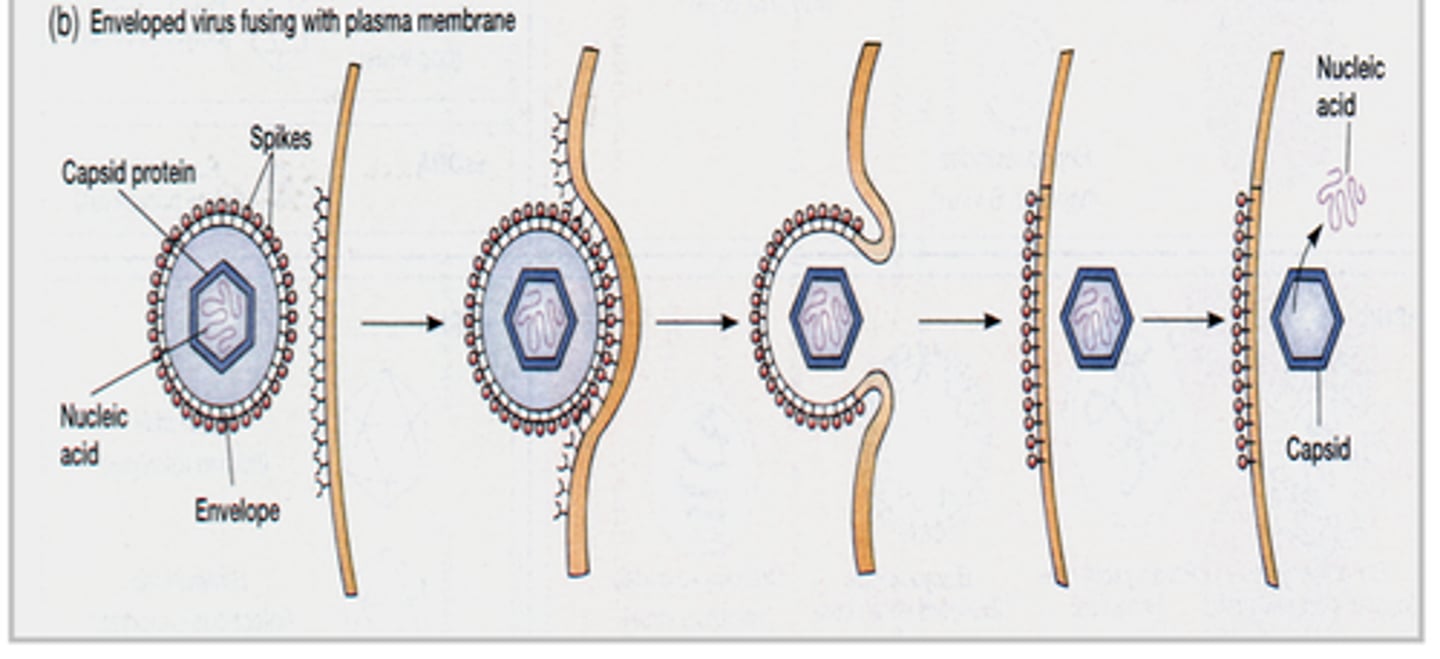
Animal virus penetration by endocytosis
- membrane fusion used for uncoating
- sometimes the envelope of virus can fuse w/ the membrane of the endosome after endocytosis, then the nucleocapsid is released into the cytoplasm (can be stimulated by low pH of endosome)
Uncoating
process of getting the viral genetic info into the cytosol since it will often be in an endosome initially
multiplication of animal viruses: biosynthesis
production of nucleic acid and proteins
multiplication of animal viruses: maturation
nucleic acid and capsid proteins assemble
multiplication of animal viruses: release
by budding (enveloped viruses, most common) or rupture
Most common penetration for animal viruses...
endocytosis + membrane fusion
Most common penetration for bacteriophages
direct penetration (phage DNA injected into host cell)
7 classes of the Baltimore system
1. dsDNA viruses
2. ssDNA viruses
3. dsRNA virsues
4. (+) sense ssRNA viruses
5. (-) sense ssRNA viruses
6. RNA reverse transcribing viruses
7. DNA reverse transcribing viruses
dsDNA examples
NE:
- papillomavirus HPV (cervical cancer + warts)
E:
- Hep B
- herpesviridae: HHV, Varricella-Zoster virus (causes chickenpox + shingles)
- herpes viruses
+ssRNA examples
NE:
- Picornaviridae: rhinovirus (most common cause of common cold)
E:
- Coronaviridae: coronavirus (SARS, MERS, COVID-19)
-ssRNA examples
one strand E:
- Rhabdoviridae
- Filoviridae
multiple strands E:
- Orthomyxoviridae: influenzavirus
ssRNA retrovrisues examples
- Lentivirus: HIV
Oncogene
cancer-causing gene
Transformation
activated oncogenes transform normal cells into cancerous cells
Transformed cell
transformed into cancerous cells
Acute viral infections
Virus makes the person acutely ill, and is subsequently cleared from the body by the immune system.
Acute infection examples
- the flu
- colds
Persistent viral infections
Slow production of virions over time; disease processes occurs over a long time period; often is fatal.
Persistant viral infections examples
- Subacute sclerosing panencephalitis (measles virus)
- HIV (AIDS)
Latent viral infections
- virus remains in asymptomatic host cell for long periods
- no virions produced during this phase
- then virus is activated and begins production of new virions
Latent viral infections examples
- cold sores
- shingles
- herpesviruses
DNA viral families
- Papillomaviridae (NE)
- Herpesviridae (E)
Papillomaviridae
Nucleic Acid: dsDNA
Enveloped? NE
Examples: Papillomavirus HPV, cervical cancer + warts
Herpesviridae
Nucleic Acid: dsDNA
Enveloped? E
Examples: Varicellovirus (Varicella-Zoster virus, causes chickenpox + shingles), many herpes viruses cause latent viral infxns
+ ssRNA viral families
- Picornaviridae (NE)
- Coronaviridae (E)
Picornaviridae
Nucleic Acid: + strand ssRNA
Enveloped? NE
Examples: Rhinovirus (most common cause of the common cold)
Coronaviridae
Nucleic Acid: + strand ssRNA
Enveloped? E
Examples: Coronavirus: cause respiratory infections (common cold, SARS, MERS, COVID-19)
Other RNA viral families
- Orthomyxoviridae (E)
- Retroviridae
Orthomyxoviridae
Nucleic Acid: -ssRNA, multiple strands
Enveloped? E
Examples: Influenzavirus
Retroviridae
Nucleic Acid: +ssRNA in virion, dsDNA made in host cell
Enveloped? E
Examples: Lentivirus (HIV)
Host range
determined by viral attachment proteins and corresponding receptors on host cells
Obligate intracellular parasites
cannot reproduce on their own, need to be inside a host cell
Generalized transduction
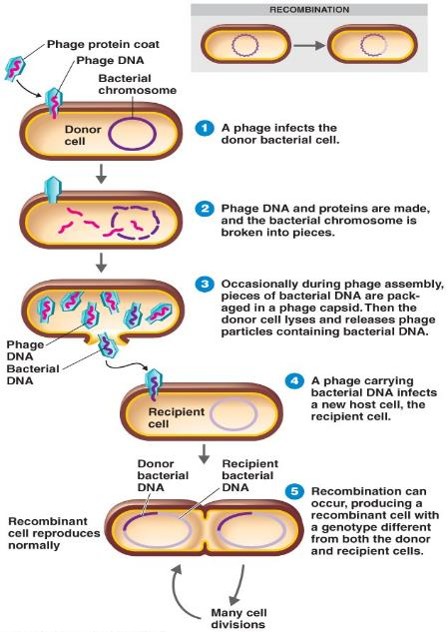
T4 multiplication cycle (lytic cycle): attachment
phage attaches by tail fibers (spike proteins) to host cell
T4 multiplication cycle (lytic cycle): penetration
direct penetration; phage lysozyme open cell wall, tail sheath
contracts to force phage DNA into cell
T4 multiplication cycle (lytic cycle): biosynthesis
synthesis of phage DNA and proteins (1. early mRNA/proteins, 2. replication, 3. late mRNA/proteins
T4 multiplication cycle (lytic cycle): maturation
assembly of phage particles
T4 multiplication cycle (lytic cycle): release
rupture. phage lysozyme breaks cell wall, lysis of cell
Lytic cycle of bacteriophage
phage causes lysis and death of host cell
generalized transduction may occur
lysogenic cycle of bacteriophage
prophage DNA incorporated in host DNA
lysogenic conversion may occur
specialized transduction may occur